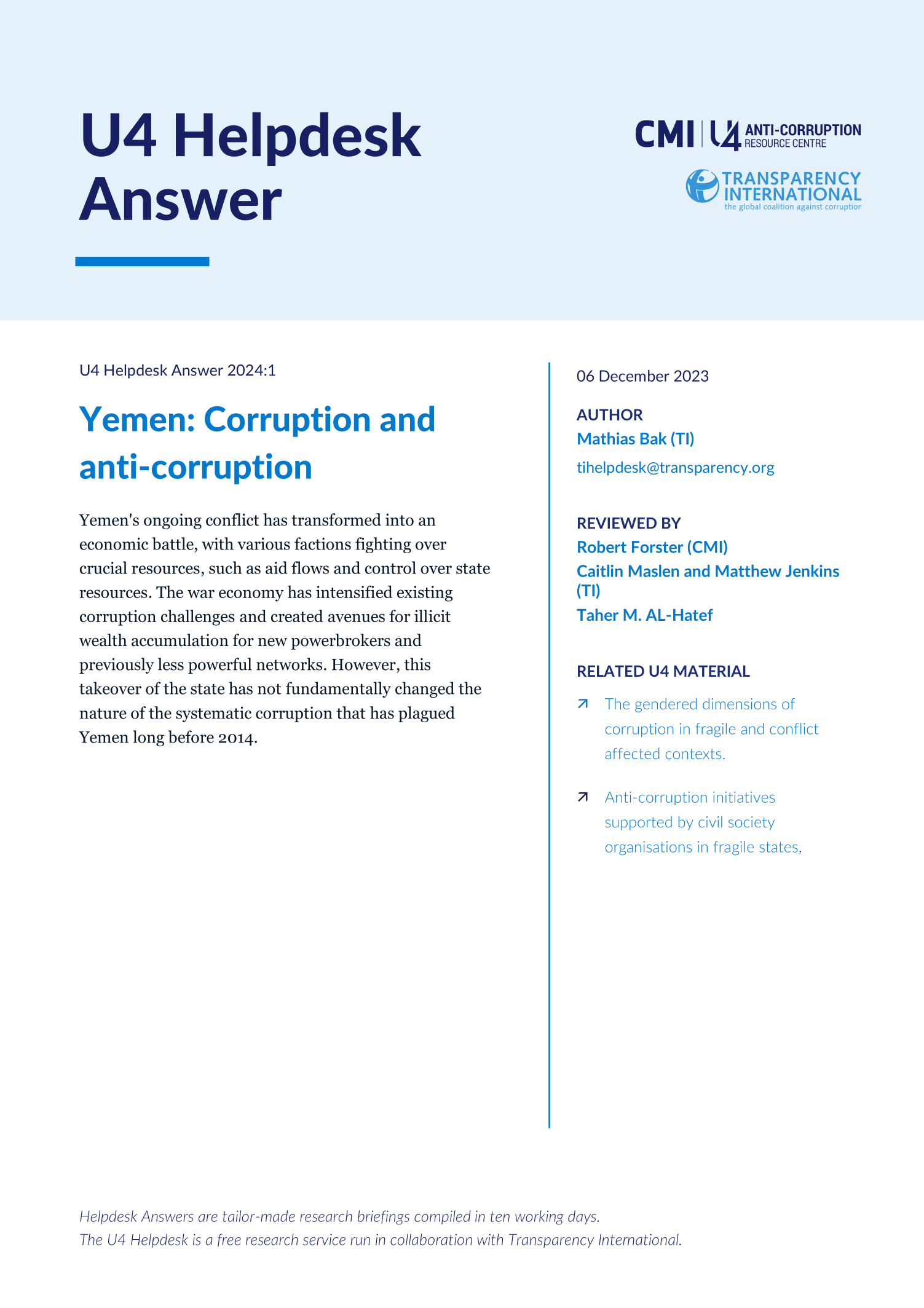Main points
- Conflict and corruption in Yemen have reinforced each other.
- The war economy has led to a more fragmented economic landscape and the expansion of opportunities for gatekeepers to extract wealth through corrupt means and in the illicit economy. In other areas it has fueled pre-existing corruption challenges.
- While the armed conflict in Yemen may have disrupted some corrupt networks, it should not be assumed that it has fundamentally changed the preexisting nature of state capture and corruption in the country.
- While the legal framework has some key strengths, there is no evidence that the regulatory system has the capacity to adequately hold actors accountable for acts of corruption.


